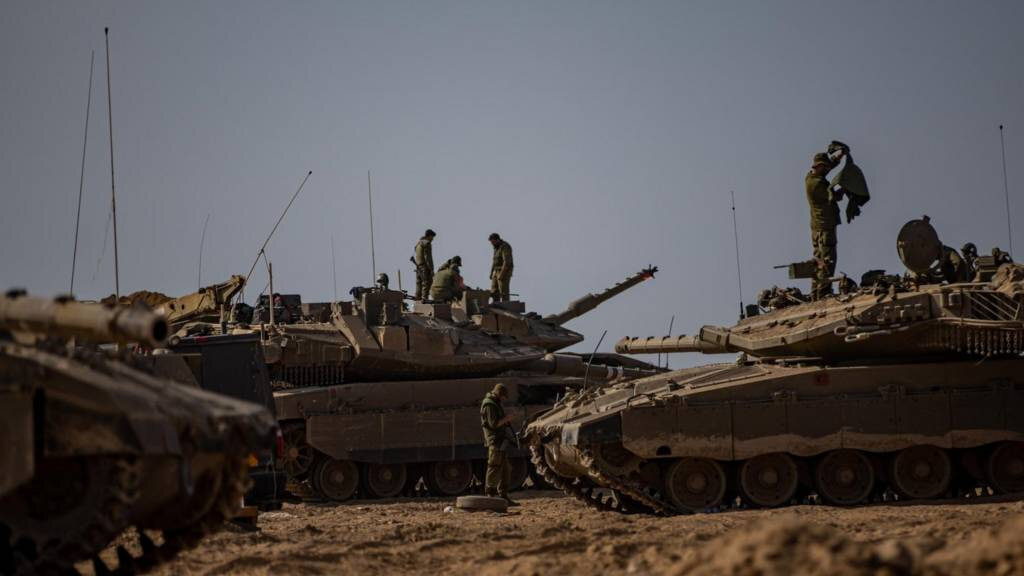More Bad News for Ukraine

It was clear, from day one, that Israeli going for an extensive war against Palestine has terrifying indication for the ongoing war in Ukraine, specifically given the war fatigue Ukraine’s allies in the West have been suffering since the failure of the “summer counter offensive” operation by Ukraine.
The weaponry stockpiles of the West, more significantly in Europe, has been exhausted since long ago without a proper reinforcement plan in action. In some cases, some supporters of Ukraine like the United States were forced to reallocate the inventories from the countries they had stocked them previously to meet the increasing demands of the Ukrainian army. These rearrangements of priorities have different meanings for different parties now.
For long, Ukraine has enjoyed the privilege of being considered the first and foremost priority of the West and was considered the final destination of resources accessed through the reallocations. This is not the case anymore.
Opening a new front in the West Asia, namely the Occupied Palestine, has shaken the list of priorities and sent Ukraine down to the second or even third item. In the most recent case, it was revealed by an Israeli media that the U.S. has decided to return to Israeli the military inventories it previously had withdrawn from the Occupied Palestine to send them over to Ukraine.
According to the report, “the U.S., yesterday, returned to Israel tens of thousands of shells which it had previously withdrawn from its stocks in the Occupied Palestine to send for Ukraine. An American cargo ship just finished unloading tens of thousands of 155mm shells”. These ammunitions were sent to different units of Israeli Occupation Forces (IOF) “to be used against Gaza and probably Lebanon”.
So far, the report says, “123 cargo planes and 7 cargo ships with over 7000 tons of weaponries and military equipment have been shipped to the Occupied Palestine by the U.S.”. There have been multiple reports already indicating the fury and disappointment of the Ukrainian authorities due to the change of priorities by Ukraine’s allies in the war, to the extent that the Ukrainian president, Volodimir Zelenskyy, desperately tried last week to assure his western friends that he will “return” their financial and logistic favors once the war is over; a message which did not meet the praise he was expecting. Given the sophistications of providing consistent aid for Ukraine in a war which has no future, it seems that the historical defeat for Ukraine is looming from within the piles of rubble which is what’s remained from Ukraine.
Ruins of Economy and the Looming Recession
Against the background of a prolonged war which stands against literally all strategic principles building the entirety of Zionist entity, the economics of war is attracting more and more attention every day. Although there has been a collective effort to hide the economic aspect of Isarel’s aggression against Palestine through putting the idea of “a final and decisive victory” ahead of anything else (even the unprecedented lose of manpower for the army), but as the second month of the war appears on the horizon, it gets more difficult to ignore. This was mentioned yesterday by the chief of Israel’s central bank who warned about the “unexpected costs” of the war on Gaza.
The Bank of Israel Governor, Amir Yaron, described the costs of the indiscriminate bombing of civilians of Palestine as a “major shock” to Israel’s economy and said, “although the Israeli economy is strong and stable, but there is no doubt the war will have fiscal implications and generate budget pressures” at an International Monetary Fund (IMF) conference in Washington. For every economic commentator, even the pro-Israel ones, it is obvious that the confidence of Yaron in describing Israeli economy as “strong and stable” is derived from the long-existing assurance that allies like the U.S. and European countries are always there to help the fragile economy of Israeli if it is required. But as multiple indicators imply, the chain of events during the past half a decade, specifically the Covid Pandemic and the war in Ukraine, have proved the aforementioned assurance challenging to uphold.
Leave a Comment